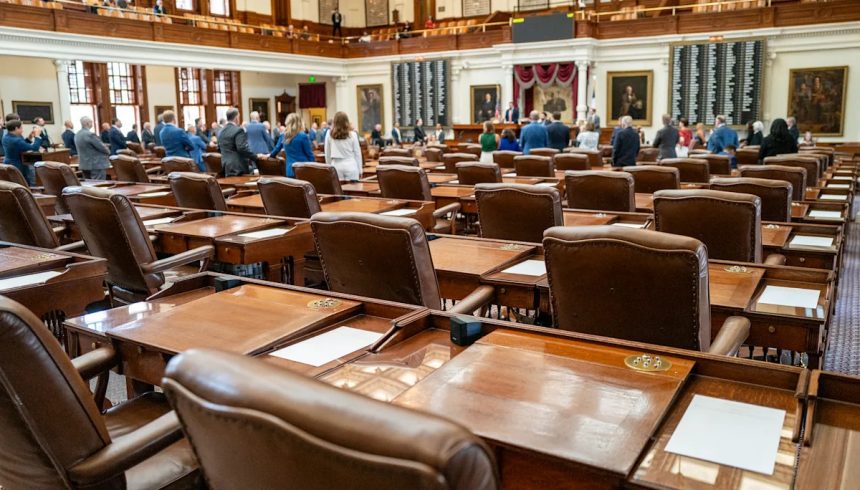Texas House Democrats unveiled their legal counterattack Friday against Gov. Greg Abbott’s bid to oust them from office, saying the governor’s emergency bid is riddled with fatal flaws.
Rep. Gene Wu, the leader of the Texas House Democratic caucus, argued in court papers filed with the state Supreme Court that Abbott’s plan would violate the Texas Constitution, which leaves it to the legislature to discipline its own members.
The Democrats fled the state to try to derail Abbott’s ultra-partisan redistricting proposal. Abbott has asked the state Supreme Court to eject them from office, saying their decision to leave the state amounted to a legal “abandonment” of their posts.
Wu argued that the effort by Democrats to “break quorum” and deprive Republicans of the ability to conduct legislative business is not an abdication of their duty but an affirmation of it.
“When in the course of legislative proceedings, the act of the majority is so shocking of the conscience, it is the duty of the legislator to not, with ease, render his body a means to the end,” Wu’s attorneys wrote.
The lawyers emphasized that there is a “long history” of quorum breaking in Texas and that it is contemplated in the state’s constitution.
Wu also flicked at a simmering tension between Abbott and Attorney General Ken Paxton, who argued in his own letter to the court earlier this week that Abbott may not have the legal authority to take action against the legislators. Underscoring the point, Paxton filed his own separate actions Friday afternoon in the Texas Supreme Court to remove 13 Democrats — including Wu —from the legislature.
Paxton, inhis letter, said that while he appreciates Abbott’s “passion,” only the attorney general has the legal authority to seek the lawmakers’ removal.
Wu’s filing is the latest volley in a deepening crisis that has extraordinary national implications for the future of both political parties. Fifty-one members of the Texas Democratic caucus fled the state earlier this week to prevent Abbott and Republicans from adopting new congressional district boundaries expected to net Republicans five seats in the U.S. House.
The quorum-breaking gambit has drawn support from national Democrats, including several governors who have welcomed the fleeing lawmakers to their states and vowed to protect them. Meanwhile, Texas’ battle to redraw political boundaries has inspired both Republican and Democratic governors to consider corresponding efforts that could remake the parties’ fortunes in the 2026 midterm elections, as President Donald Trump fights to maintain his grip on Congress.
Abbott sued on Tuesday, claiming that Wu — as well as the other Democratic quorum-breakers — had legally “abandoned” their offices, which would permit the court to declare their seats vacant.
But Wu contended that he and his colleagues were in fact fulfilling their roles as legislators by refusing to give their GOP counterparts a quorum.
Wu also argued that Abbott erred by filing his suit directly to the Supreme Court, evading review by the lower courts that would typically consider Abbott’s bid first. He also said that only the legislature can remove its own members, which the constitution provides for by a two-thirds majority, a far greater hurdle than Abbott’s bid to corral five Supreme Court justices.
And Wu added that the governor’s petition relies on allegations about the lawmakers’ subjective “intent” that aren’t grounded in facts and evidence. He said he plans to invoke his right to a jury trial, which would require a more complete record of evidence than Abbott has offered.
“If Representative Wu is to stand trial, he should do so on evidence, yet the Governor bases his petition on hearsay,” Wu’s lawyers wrote.









